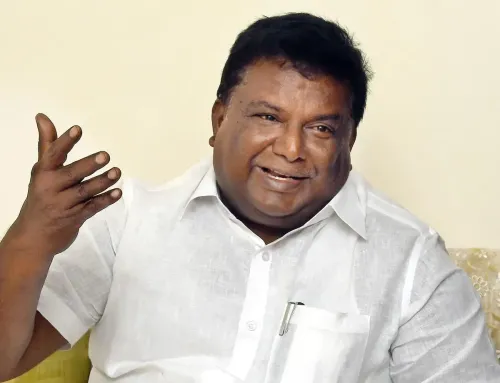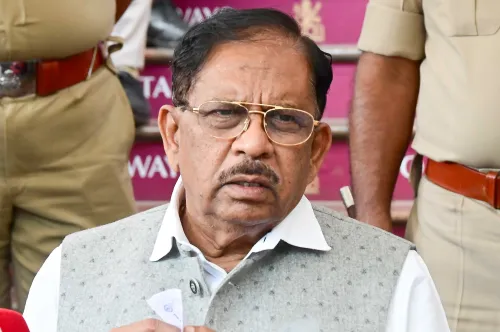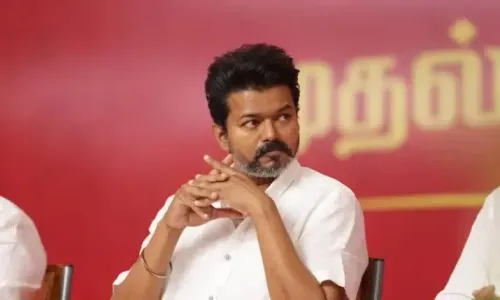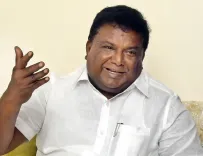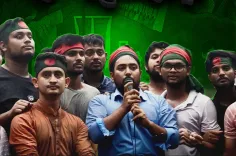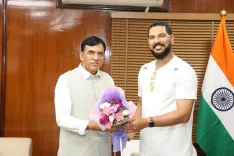Should EAM Jaishankar Advocate for a Balanced Approach to AI?
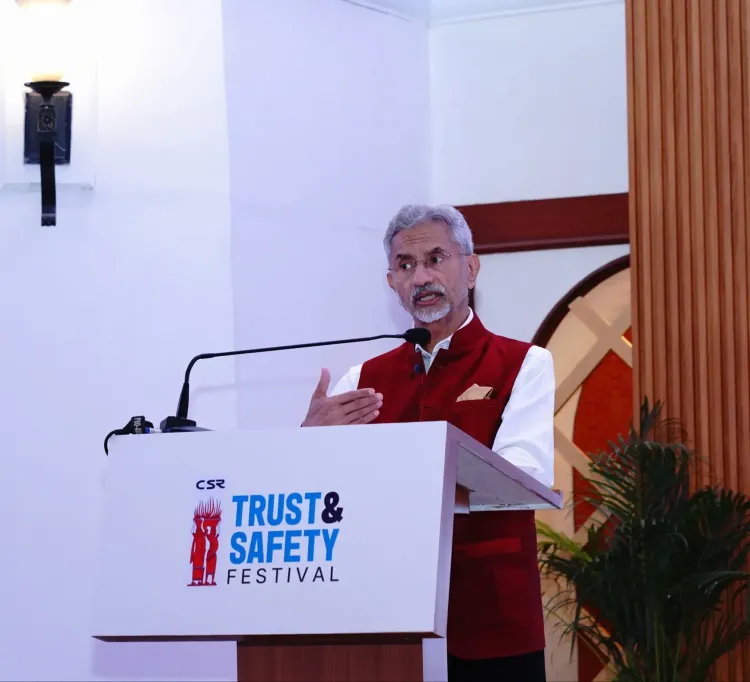
Synopsis
Key Takeaways
- EAM Jaishankar calls for a balanced approach to AI governance.
- Trust and safety must guide the development of AI technologies.
- India has a unique role as a global leader in digital governance.
- Collaboration is essential for inclusive AI policies.
- Concerns over bias and ethics require serious consideration.
New Delhi, Oct 7 (NationPress) External Affairs Minister (EAM) S. Jaishankar, during the inaugural session of the Trust and Safety India Festival (TASI) 2025, emphasized the transformative potential of Artificial Intelligence (AI) while calling for a balanced and responsible approach to its governance.
The festival, held on Monday, functioned as a pre-summit event leading up to the AI Impact Summit planned for February 2026.
In his address, Jaishankar pointed out that while technology has historically contributed to human advancement, its consequences are shaped by societal choices.
"Throughout human history, the trajectory of progress has been influenced by technological advancements. However, this journey has not always been straightforward. The promise and peril of technology coexist, and the choices we make in their application shape outcomes—whether they lead to empowerment or exploitation, democratization or domination, and partnership or polarization," he stated.
He added, "We stand on the brink of a significant transformation, and the decisions we make now, both individually and collectively, will determine our future."
The EAM noted that AI is poised to significantly alter economies, transform work practices, foster innovative healthcare solutions, enhance educational access, boost efficiencies, and redefine lifestyles.
"What sets this transformation apart from the past is its all-encompassing nature; it will affect every individual around the globe. While new efficiencies and possibilities will arise, so will new players and power dynamics," he explained.
He emphasized the importance of adopting a balanced approach to AI governance and ensuring that sufficient guardrails are in place to protect digital citizens.
Quoting Prime Minister Narendra Modi, Jaishankar remarked, "Technology can be a force for good, but it requires guidance from humanity."
He reiterated that trust and safety are fundamental to responsible AI governance. For a nation like India, this involves creating indigenous tools and frameworks, self-assessment processes for innovators, and suitable guidelines.
"Only then can we ensure that the development, deployment, use, and governance of AI is both safe and accessible," he added.
Highlighting India's role in global digital governance, the EAM stated, "India has a unique responsibility, as many nations—particularly in the Global South—look to us for inspiration. Our achievements in digital public infrastructure over the last decade, in terms of scale, governance improvements, and public service efficiencies, are already making waves globally."
Jaishankar acknowledged that different societies have varying perspectives on the benefits and risks associated with AI.
"Naturally, some narratives are shaped by vested interests. Nonetheless, it is crucial to maintain a measured and balanced viewpoint. Concerns regarding bias, ethics, privacy, and vulnerability are valid, rooted in prior experiences," he noted.
He cautioned against the deterioration of trust in institutions.
"We must be particularly vigilant against the risk of losing faith in the institutions and practices that underpin our daily lives. We observe a tendency to question the referee or the playing field when outcomes are unfavorable. Thus, maintaining and even strengthening trust—especially in the age of AI—is of utmost importance," he concluded.
Jaishankar stressed the necessity of fostering a global dialogue on AI governance.
"History has shown us that every groundbreaking technology has sparked similar efforts. However, these initiatives have not always been straightforward," he stated, warning against the temptation to prioritize narrow self-interests over the common good.
"We must rise to this challenge, as the stakes are incredibly high. It concerns not only the ambitions of governments but also the personal interests of every citizen on this planet," he added.
Reaffirming India's commitment to global AI leadership, the EAM noted, "India has consistently advocated for global AI governance and the shaping of an international agenda. We showcased this during our G20 Presidency, strongly promoting its use to further Sustainable Development Goals while ensuring trust, safety, fairness, and accountability."
He highlighted India's proactive involvement as a founding member of the Global Partnership on AI.
"We endorsed the New Delhi Declarations, which envision responsible and inclusive AI. We actively participated in the AI Summits in Bletchley Park and Seoul and co-chaired the Paris AI-Action Summit last year. The AI Impact Summit in 2026—focusing on impact—will further this agenda," Jaishankar said.
In closing, the EAM underscored the necessity of inclusivity in AI governance.
"The success of this initiative relies on our ability to ensure multi-stakeholder participation. That is why the TASI Festival is crucial, as it conveys a strong, inclusive, and people-centric message on this vital issue," he concluded.

